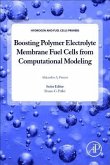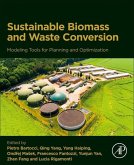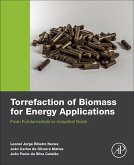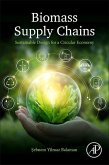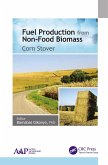Fuel cell technology has attracted great interest in recent decades. However, progress in lignocellulosic biomass-energized fuel cells has been slow. This is because that lignocellulosic biomass generally cannot be directly used for electricity generation in a fuel cell with high efficiency. As a renewable resource is available in large quantities in many regions of the world, lignocellulosic biomass can be a promising feedstock for sustainable electricity production using fuel cell technologies. In this monograph, we focus on the electricity generation in fuel cells that are operated at high temperatures with high efficiency using lignocellulosic biomass-derived fuels. More specifically, we discussed biomass conversion coupled solid oxide fuel cell and direct carbon fuel cell. The state of the art in technology development, as well as challenges, is outlined and perspectives on future development are provided.
Hinweis: Dieser Artikel kann nur an eine deutsche Lieferadresse ausgeliefert werden.
Hinweis: Dieser Artikel kann nur an eine deutsche Lieferadresse ausgeliefert werden.

